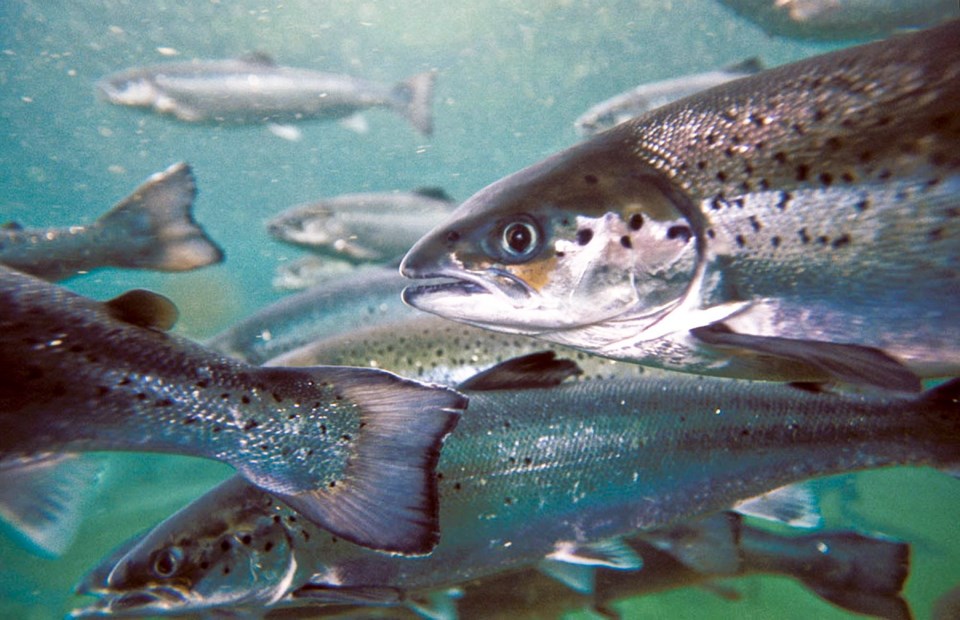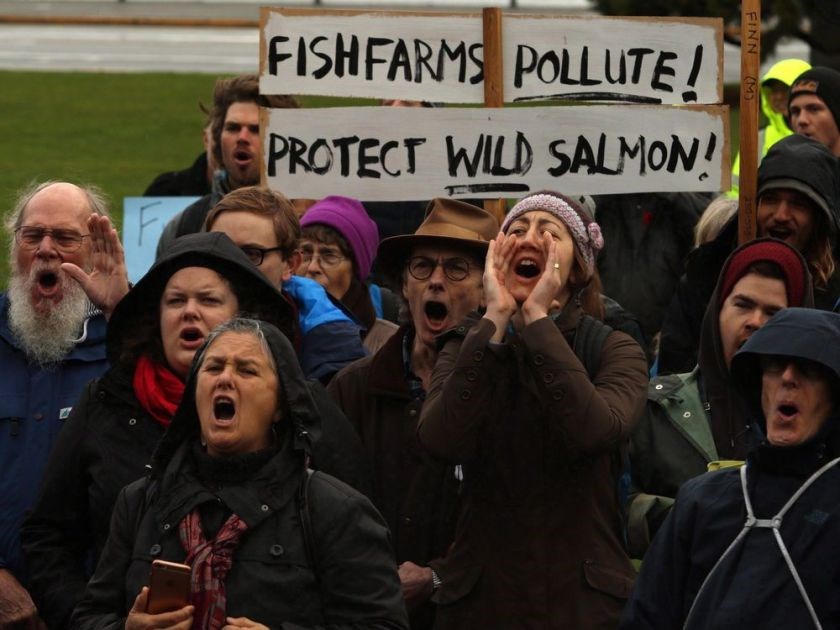A B.C. Supreme Court justice has granted an aquaculture firm an injunction against activists, but will allow one who is a marine biologist to continue collecting water samples within a buffer zone outside its salmon farms.
Marine Harvest Canada was on Thursday granted an injunction that blocks activists from occupying its buildings on Swanson Island, located east of Port McNeill, and from boarding any of its farms and docks along Vancouver Island and B.C.’s coast. The injunction also blocks activists from a buffer zone between Marine Harvests’ farms and buoys.
An exception was made, however, for marine biologist Alexandra Morton, who is allowed to enter the buffer zone — in a boat no longer than 2.6 metres — so that she may continue collecting water samples for her research.
> For more stories on B.C.'s fish farms, go to timescolonist.com/more
Morton’s research has focused on the piscine orthoreovirus (PRV), which has been detected in fisheries effluent collected by both the B.C. government and Atlantic Veterinary College. But researchers from the B.C. Centre for Aquatic Health Sciences and University of B.C. found that “infection studies in B.C. reveal no mortality of salmon resulting from a heavy PRV infection,” according to a report they prepared in March for the Ministry of Environment.
Marine Harvest said in a statement that it applied for the injunction after activists occupied its Swanson Island buildings and boarded several of its farms last year, creating an unsafe work environment for its employees. The firm said the activists have interfered with its work.
“We respect the right to peaceful protest, but have a responsibility to protect our employees from harassment and threats,” Marine Harvest spokesman Jeremy Dunn said in a statement. “We are thankful that the court has helped to preserve a safe workplace where our farmers can focus on raising healthy fish.”
The Sea Shepherd Conservation Society said in a statement that the 2.6-m boat that Morton is allowed to use is “so tiny it is unsafe to operate” in B.C.’s coastal waters.

Morton said in a statement that she believes Marine Harvest doesn’t share adequate information about the health of its salmon, and allowing scientists access to the water outside the farms is in the public interest.
“I consider it legitimate and important to document and expose the disease contamination released by salmon farms into B.C. waters,” Morton said.
Sea Shepherd founder Paul Watson said in a statement that he is pleased Morton can continue her research, but is disappointed First Nations people have been blocked by the injunction.
“B.C. courts have a long tradition of siding with corporate interests against the interests of First Nations and environmentalists,” he said.
According to Marine Harvest, the company operates within the traditional territories of 24 First Nations and has formal agreements with 15 of them and eight First Nation-owned businesses. As well, 20 per cent of its Canadian workforce is of First Nations heritage, the firm said.



